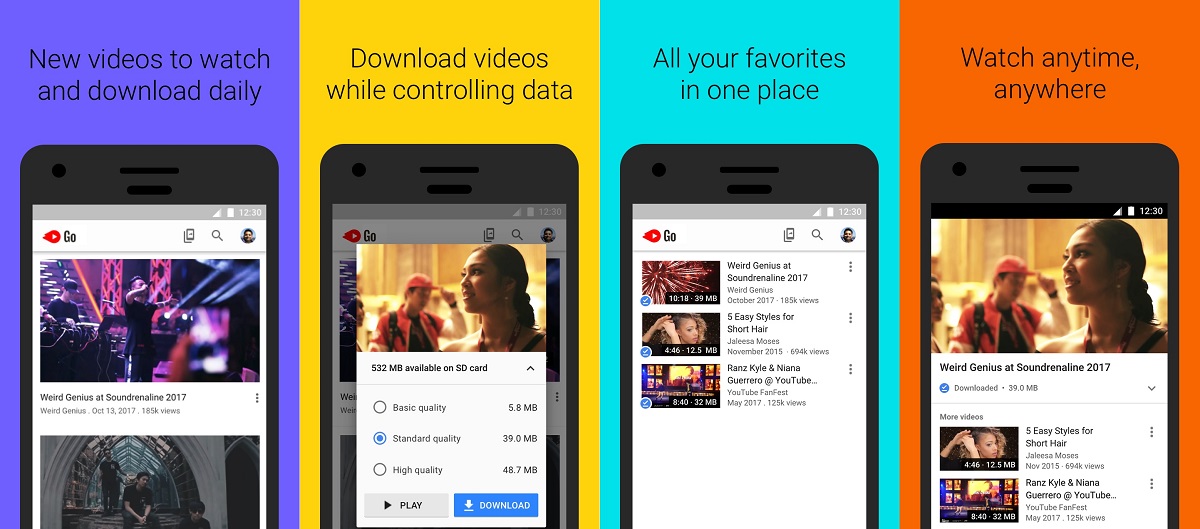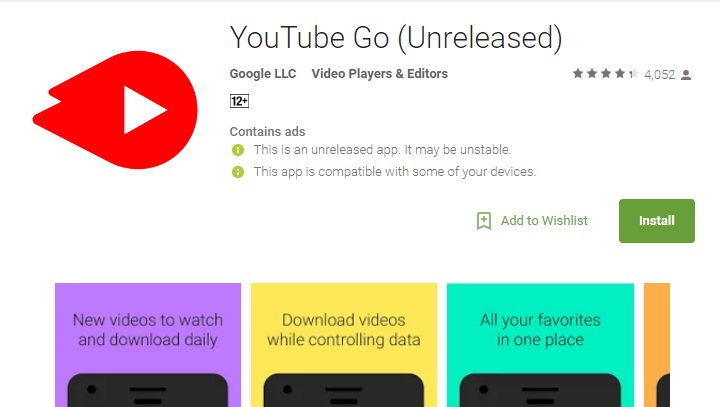YouTube Go has arrived in Malaysia, bringing with it a re-designed method for watching online video on mobile data. The lightweight app is intended to cater for an offline first mentality, centering the service on allowing viewers to download videos for watching later.
The idea behind YouTube Go is that not everyone will have access to stable and fast internet connections. These folk are likely to be on strict data caps, or live in less developed regions of the world. As such, the app simplifies matters and brings a more transparent user experience.
While it is capable of streaming videos, the ultimate goal is for YouTube Go to download video over slow data connections. Users are provided with three resolutions for videos, each of which includes a clear indication of file sizes. The choices range from small, medium, and large; which correspond to 144p, 360p, and 720p respectively (although YouTube doesn’t explicitly say this).
Ideally, this allows people to decide how long to wait before being able to watch their videos. The lack of higher resolutions is due to the app being targeted at the “next billion customers”, most of which aren’t nearly as tech savvy as the usual mobile equipped crowd.

Downloaded videos can also be shared directly to nearby devices. The YouTube Go app is capable of a direct wireless connection that will transmit downloaded videos. It’s a sort of offline sharing feature, which works for those who have unreliable connections and want to share something interesting. YouTube doesn’t want to officially say how the connection is made, but we expect it has something to do with WiFi Direct.
That said, YouTube is still a company that runs on advertising – and the same goes for the content creators. This simply means that monetised content will contain ads; including downloaded content. Good news for creators, less interesting for those of us using ad blockers.
YouTube Go is technically still in the testing phase at the moment. The app rolled out in beta form to the Philippines in September, and has now expanded to include Malaysia, Ghana, Kenya, Senegal, South Africa, Sri Lanka, Tanzania, Thailand, Vietnam, and Zimbabwe.
Follow us on Instagram, Facebook, Twitter or Telegram for more updates and breaking news.



